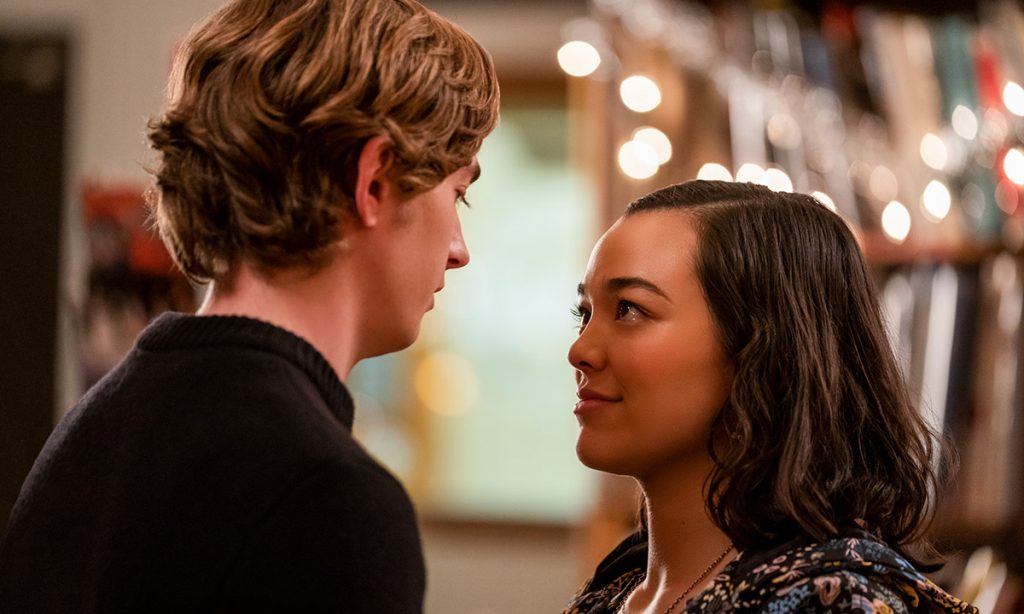Dash & Lily is one of those saccharine sweet romcoms that is so sugary that you almost become a diabetic. The show was from a YA book titled Dash & Lily’s Book of Dares by Rachel Cohn and David Levithan, who also wrote the book Nick and Norah’s Infinite Playlist. It’s tale of two well-off Gen Z teens getting to know each other through notes passed in a red notebook. It’s one of those contrived romance plots that only makes sense because it’s teenagers doing it.
Dash (Austin Abrams) doesn’t like people, preferring books instead. He finds a red notebook in the Salinger section of the Strand bookstore in Manhattan, and soon he is exchanging dares with the owner of the notebook, Lily (Midori Francis). Lily is a relentlessly upbeat girl who’s very fond of celebrating Christmas with her multicultural family, but she’s been left alone with her brother Langston (Troy Iwata). As Dash and Lily try to make each other more well rounded- Dash sends Lily to a klezmer-punk show on Hanukkah while Lily sends him to well-decorated Christmas houses and a mochi making session- they run into obstacles, including family schisms on Lily’s end and a returning ex on Dash’s end.
What makes Dash & Lily so lively is its intricate portrayal of contemporary New York. It’s a very specific version of the city, seen through the lenses of two very different teens.
It’s bittersweet in a way, since Christmas in the real world probably won’t be as fun this year. There is both a harmony and contrast between the denizens shown in the series: for instance, Lily’s Asian American grandfather is strict while her great aunt is more theatrical and a free spirit. Dash’s ex, Sofia (Keana Marie) is, thankfully, understanding and supportive despite her feelings for him. She even reminds him not to put girls up on a pedestal, which is something teenage boys in love almost never manage to do.

The chemistry between the two leads is also palpable, which is surprising since they only meet up late in the season. Before that, their dares help to bring each other out of their shells. Dash’s misanthropy becomes more manageable, while Lily learns to confront her insecurities about being “weird”. Of course, when they do meet, they have to deal with the disappointment with the disconnect between expectations and reality.
Of course, like most teen romcoms, the leads are actually in their twenties, but for most of the series, they are believable as teens. The series ends in the way you expect it to, with Lily ditching her parents while on the way to the airport (they were moving away to Fiji because her dad got a new job there) and joining Dash in the Strand, reconciling their differences and finding common ground with each other. By the end of the series, you realize that it played out like a modern fairy tale, and you chuckle at the fact that you were taken along for a ride.
Surprisingly, it’s not the romance that makes you fall for the show, but how the two of them help each other figure themselves out. Unlike whirlwind teenage romances, this is built on understanding and support, and it makes you hopeful that maybe teens don’t always have to be prone to making mistakes with relationships.






















